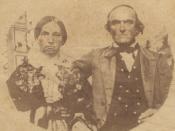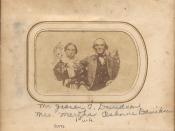The Martha Stewart insider trading scandal of 2001 is an excellent case study for business ethics, a key topic to emerge from this case is whether Martha Stewart handled the indictment responsibly. There are many aspects to examine in such an expansive case, however the focus will be specifically on her actions during the investigation and court proceedings. I believe Martha's actions overall were self-serving and not those of a responsible CEO.
The scandal can be surmised that Martha sold 3,928 shares of biotech drug maker ImClone Systems Inc. on Dec. 27, 2001 - after an inside trader tip-off that Food and Drug Administration would not review ImClone's application for approval of Erbitux, which the company had touted as a promising cancer drug. ImClone Systems Inc. stock subsequently plunged, sending the company's stock price tumbling and Martha had avoided the loss of approximately $50,000. Martha was charged with conspiracy, obstruction and two counts of lying to investigators and convicted on the two counts of lying.
I feel that Martha Stwearts' actions of lying to investigators was irresponsible as a CEO, she knew her actions were inappropriate and tried to conceal it. The case against Stewart came as a result of ImClone Systems Inc. CEO, Samuel Waskal and his daughters quick dump of ImClone Systems Inc. shares. While Waskal had been a long time friend of Stewarts' they also shared the same broker, Peter Bacanovic. Allegedly Martha received a tip-off by Bacanovic's assistant, Faneuil, that Waskal was dumping all his shares of Imclone. Bacanovic was actually away on vacation when the trade & alleged tip-off occurred. It was through Bacanovic's assistant, Faneuil that the message "Peter Bacanovic thinks ImClone is going to start trading downward." was recorded by Marthas' assistant. This phone message would be unnecessary if in fact there...


